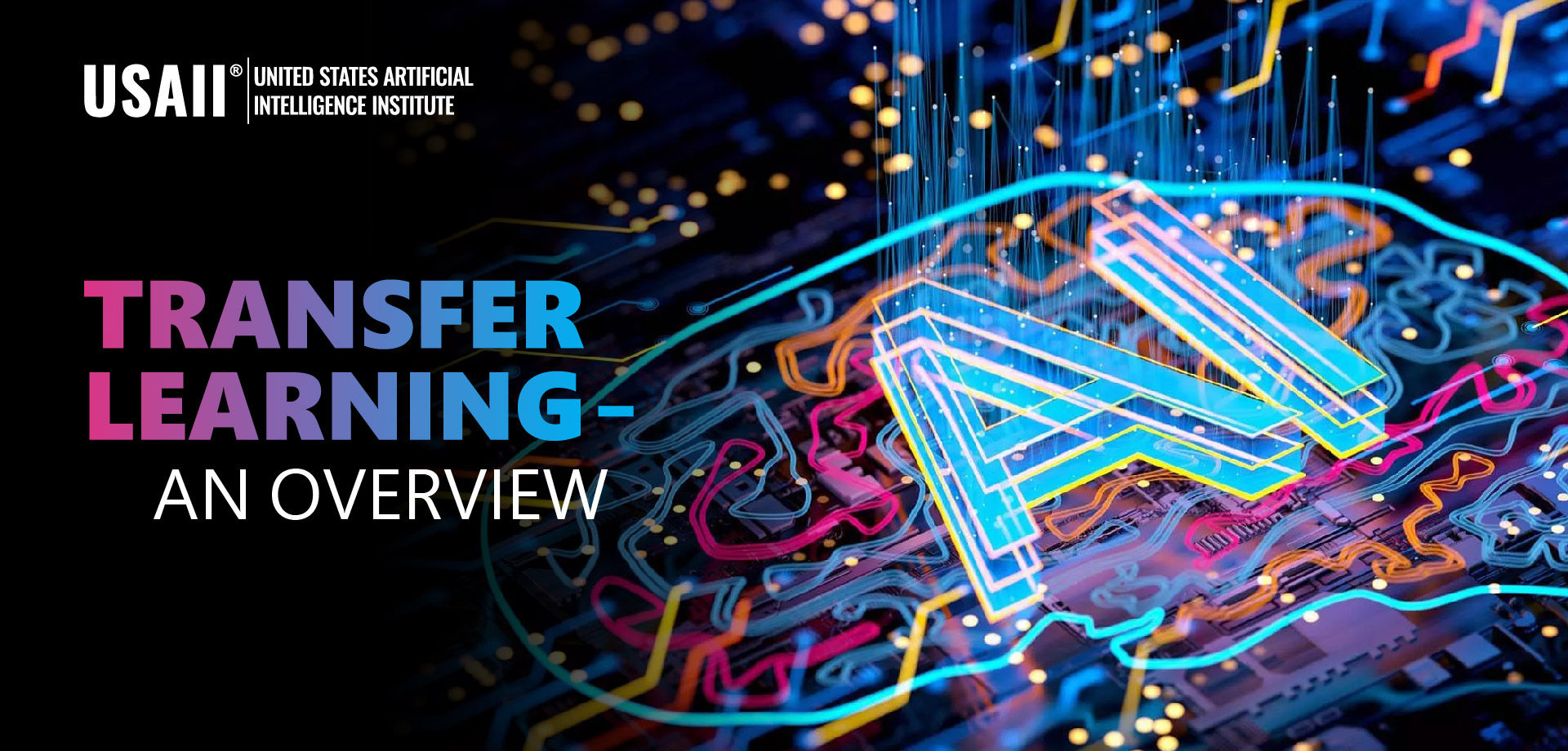
With the revolution in technological advancements, the world has seen a shift toward evolutionary learning patterns. Artificial intelligence has gained momentum over the years and has made the impossible possible with its clever nuances. today, the world sits at a staggering USD 184 billion for the AI market size worldwide; with clear projections of reaching USD 826.70 billion by 2030 (Statista). Isn’t that enough room to pivot into the Artificial intelligence domain for big gains?

Generative AI, OpenAI GPT 4o, Claude 3, LlaMa, and whatnot! These incredibly talented and armed AI open-source alternatives have transformed the way the world experiences technology today. Now is the time to move forward with yet another feather in the hat and that is Transfer Learning in AI. Certified AI professionals are working toward building a strong platform for the future of AI with clever AI skills deployed across industrial processes and systems. Let us delve deeper and understand the stance of Transfer Learning in AI and beyond.
Transfer Learning in AI:
Transfer Learning is a machine learning technique where a model developed for one task is reused as the starting point for a model on a subsequent task. This chained approach builds upon the understanding gained on the previous task that can be successfully deployed in the next step in a related problem.
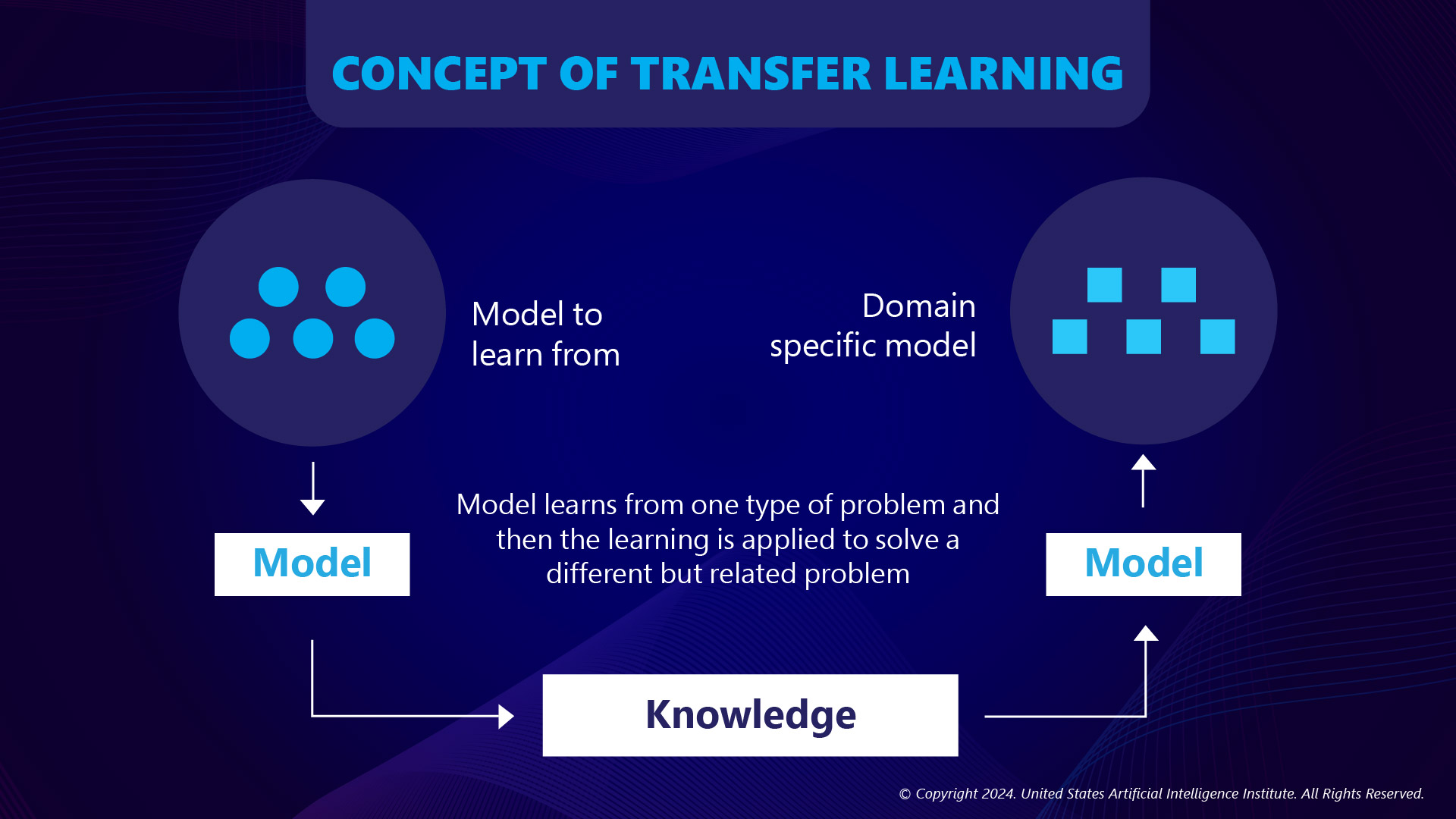
The presentation above reflects upon the smooth consonance across diverse models; being trained and deployed alongside. The knowledge gathered on one program facilitates greater inputs for the next model in hand. This is an incredible AI tactic deployed to marvel at the essential capabilities of artificial intelligence.
What makes Transfer Learning in AI necessary?
Numerous reasons compel the AI professionals’ fraternity to adopt Transfer Learning tools and techniques while developing enhanced neural networks. Some of these are listed below:
Transfer Learning Mechanism- The Working Process:
The key concepts in Transfer Learning include pre-trained models, fine-tuning of the pre-trained model, and fixed feature extraction; leading to final classification.
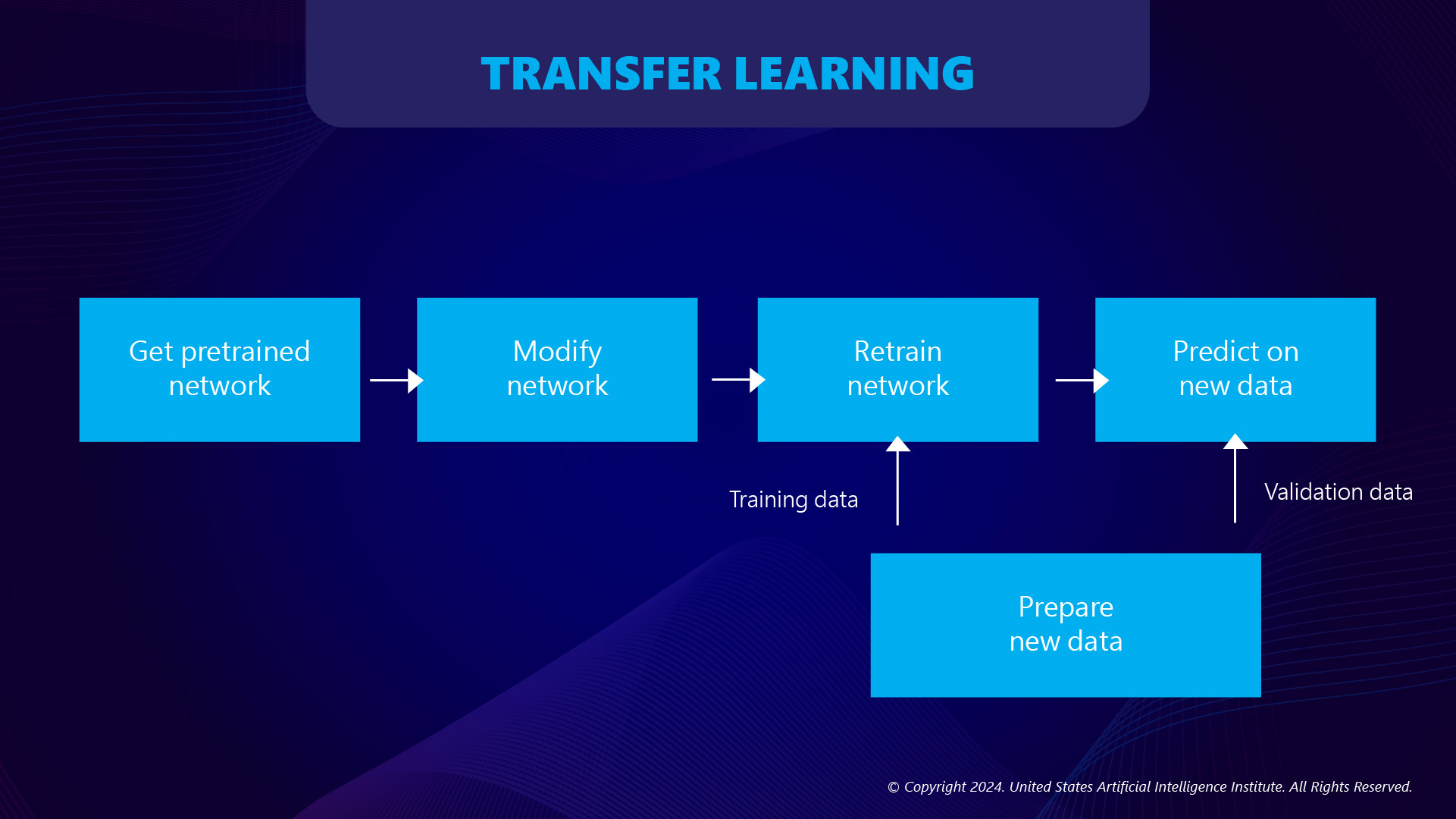
STEP 1: PRE-TRAINED MODEL
Begin with a model that has been pre-trained on a large dataset such as ImageNet for image tasks, BERT for text tasks, etc.
STEP 2: FINE-TUNING
Accommodate the pre-trained model to fit the new task in hand using a smaller task-specific dataset.
STEP 3: FEATURE EXTRACTION
Utilizing the pre-trained model as a fixed feature extractor shall help in bringing forth the final layer to be retrained for the task at hand.
Transfer Learning- Sample Workflow:
Code Generation with Transfer Learning for Image Classification:
Let us look at the popular pre-trained model VGG16 for an image classification task. This example proceeds by assuming that there is a presence of an image dataset that you wish to classify into diverse categories.
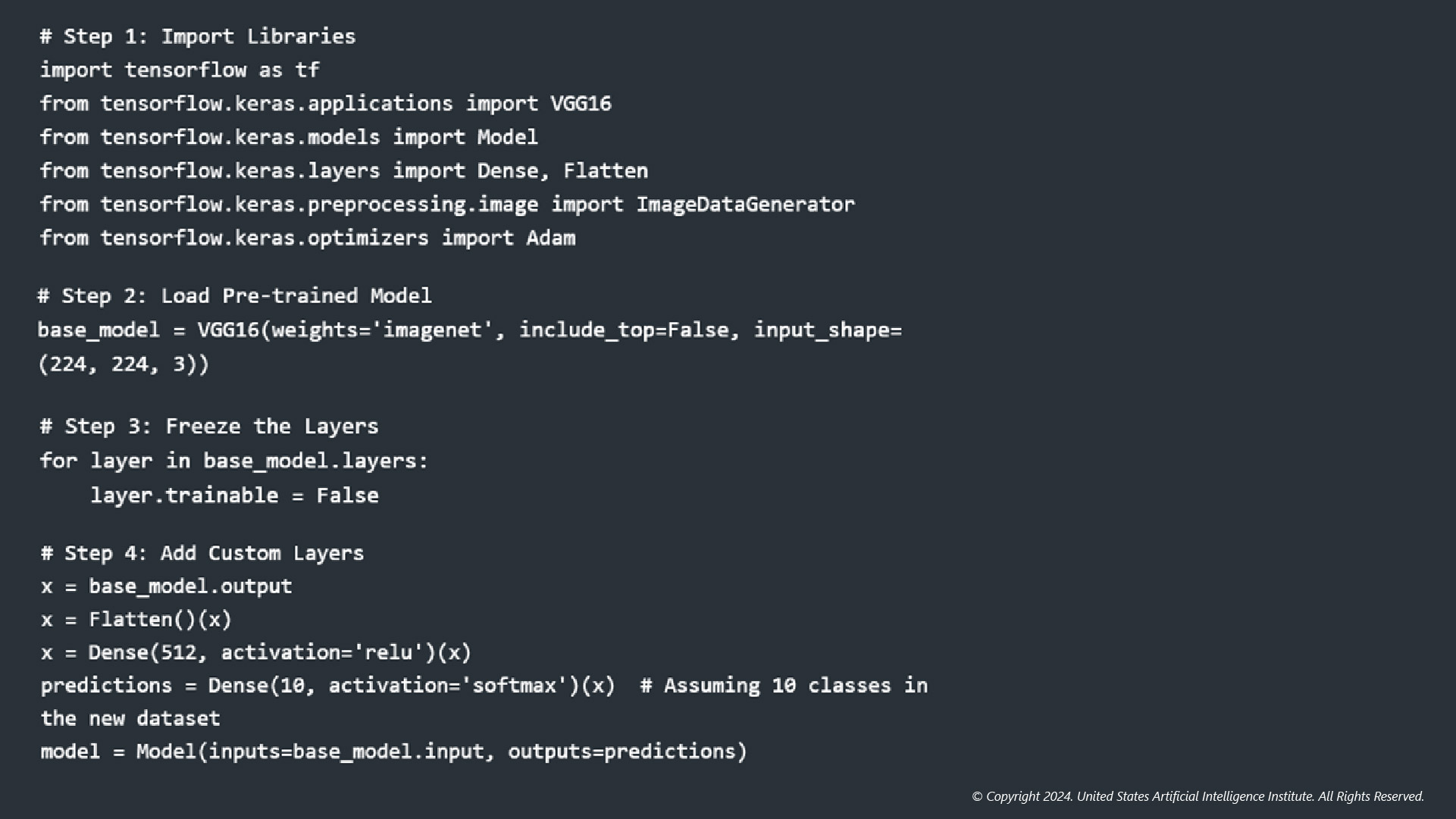
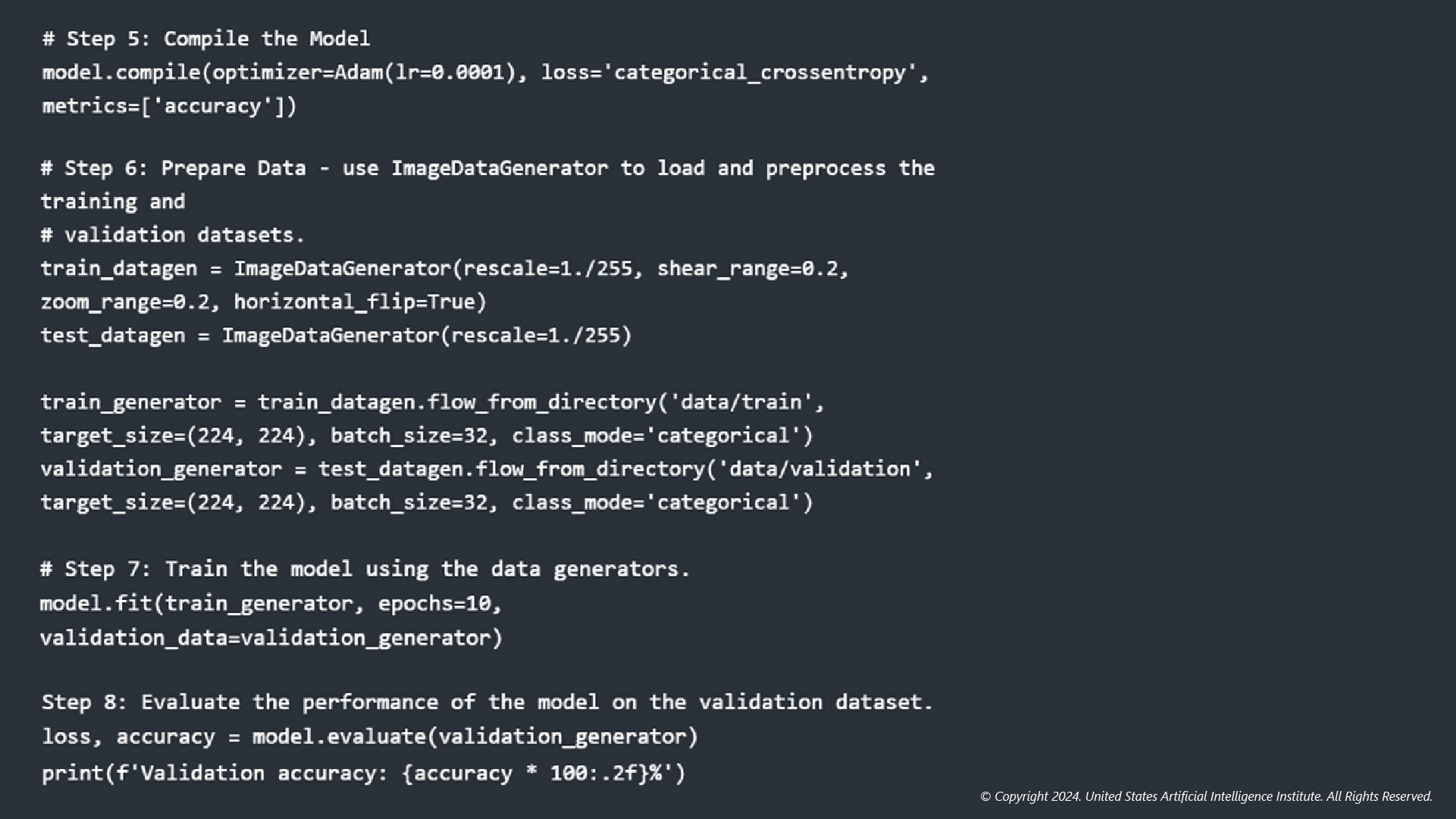
In the above code, transfer learning is utilized adaptively with the pre-trained VGG16 model for a new image classification task. This depicts a perfect example of Python using Keras. The VGG16 layers were frozen to retain the learned features and added new dense layers for the specific classification task at hand. This strategy fosters the achievement of high-ranking performance with a smaller dataset as well. This benefits from the understanding gained from a large pre-trained model.
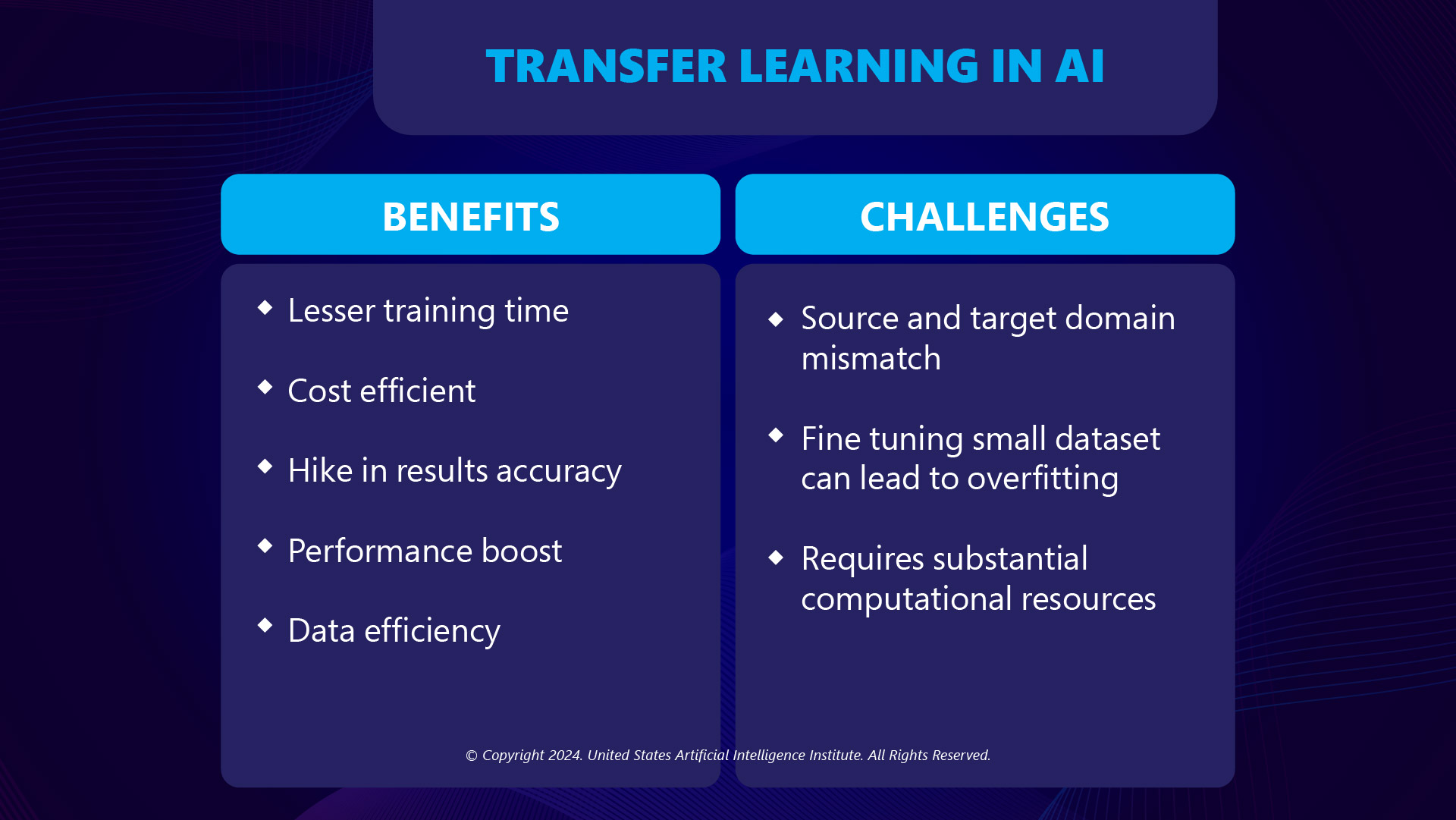
Transfer Learning- Popular Real-World Applications:
Transfer learning in computer vision amplified specific applications, from medical imaging to autonomous driving.
Finetuning BERT for specific tasks achieves results with significantly less data and computational resources input. Google reports that BERT assisted in improving its search engine’s ability to comprehend context by 10%.
Medical imaging leverages pre-trained models on a large general dataset to achieve high accuracy in tasks and image analysis.
Waymo is a prominent self-driving technology that transfers learning to enhance its object detection systems. It yields accuracy and safety of its autonomous vehicles.
Gain competence in building robust models utilizing exemplary tools and strategies deployed by trained AI professionals with top machine learning certifications. Attend to the latest in machine learning and artificial intelligence with Transfer learning. You are set out on a thriving career in AI with the best AI certifications gracing your portfolio. The time is now to master these competitive AI skills from the most trusted names worldwide!
Follow us: